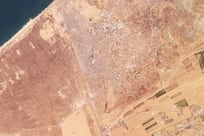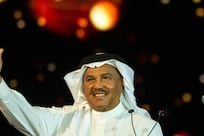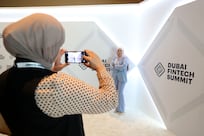DEAD SEA // Jordan on Friday announced dozens of domestic investment deals worth US$13 billion (Dh48bn).
That is part of the country’s effort – dubbed “Jordan Relaunched” – to create thousands of jobs, reduce its dependence on energy imports, and achieve ambitious economic goals.
Prime minister Abdullah Ensour announced during the opening day of the World Economic Forum on the Middle East and North Africa that committed investments include a total of $237 million from UAE companies such as a $150m solar energy project at Al Qwairah to provide up to 75 megawatts of energy, which is funded by the Abu Dhabi Fund for Development, and an $87m apartment complex at Abdali being built by Dubai-based Damac.
King Abdullah II told the forum that Jordan’s economy and its foreign exchange reserves were on the rise, while its budget deficits were declining. Jordan’s government was committed to achieve economic growth of 7.5 per cent by 2025, he said.
The Jordanians also unveiled $20bn of further investment opportunities, mainly in energy and infrastructure.
The investments are aimed at achieving a broad set of goals which the government announced last week under the banner “Blueprint 2025”, with the most demanding targets in the energy sector.
Jordan presently imports about 97 per cent of its energy needs at a cost of about 20 per cent of its annual gross domestic product. It aims to lift the domestic share of energy production to 39 per cent by 2035, with renewable energy sources rising sevenfold to 11 per cent, and two new nuclear reactors accounting for 15 per cent.
The energy investments accounted for the vast bulk of the committed energy projects that were announced, including a proposed $6bn natural gas sale-and-purchase deal with British Gas that would run over 20 years.
Other deals included a $1.5bn solar-and-wind project with China’s Hanergy, and solar projects – with a potential value of $400m – at Mafraq, Ma’an and Aqaba, with Dubai-based SkyPower among the bidders.
The energy component is key to reaching other goals, such as boosting economic growth from current rates of 3 per cent to 7.5 per cent and reducing unemployment, which has been severely exacerbated by the refugee crisis.
The government is trying to reduce its subsidy and debt load by involving the private sector more.
“Half the national debt of Jordan since 2011 has been due to an increase in fuel subsidies,” said Bassem Awadallah, chief executive of Tomoh, a Dubai-based advisory and asset management firm.
Mohamed Alabbar, the Dubai developer whose group Emaar Properties has interests in the Dead Sea resort and in developments in Amman and Aqaba, said: “We’re emotionally engaged in Jordan because we’re from the region, but the bankers don’t want emotion they want the numbers to tally. The numbers from Jordan show us a growth story, with a better rate of return than I’d get in the USA or Europe.”
Mr Alabbar said that interest by Arabian Gulf countries in Jordan was “fantastic” and that the lower oil price would not affect ongoing investment in the country.
Suma Chakrabati, president of the European Bank for Reconstruction and Development, said that Jordan still needed to improve its overall investment climate, but said that energy, small business and technology were all growth sectors.
At the forum, Egyptian president Abdelfattah El Sisi said the Arab world was facing severe political, economic and security challenges, and countries in the region had to tackle them with the international community. “The fight against violent extremism is fought using job opportunities and employment,” he added.
He also announced that next year’s forum would be held at the Red Sea resort of Sharm El Sheikh.
The Jordanian government also announced $1.9bn worth of urban development investment, including a $500m project to renovate downtown Amman. There was also $980m of outside investment in infrastructure announced, and $118m in information technology.
Included in a total $22m worth of transport projects were several initiatives to provide the Jordanian royal court and the Amman taxi service with electric cars.
amcauley@thenational.ae
fkane@thenational.ae





